TV’s best action drama Warrior makes a surprise comeback
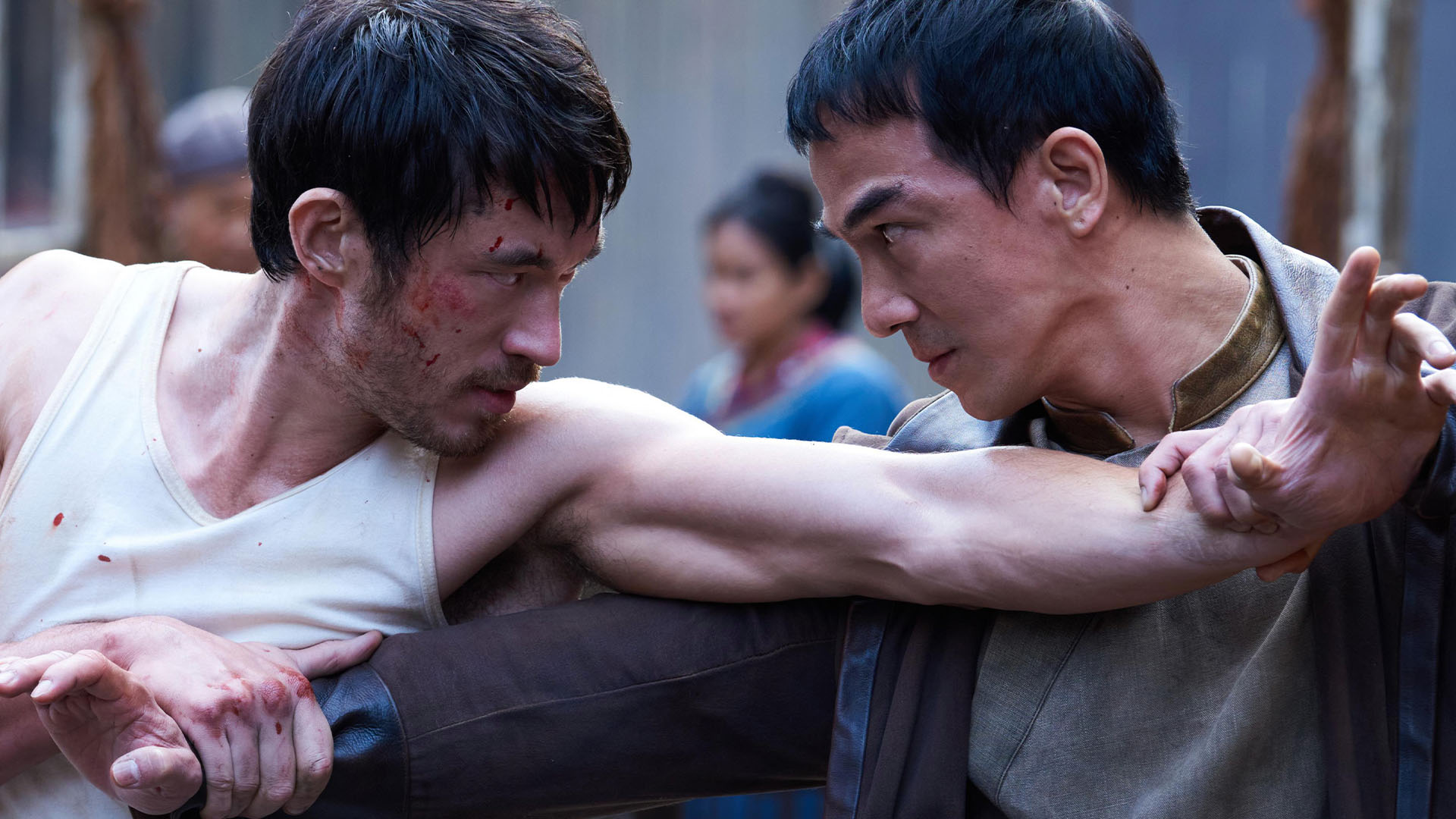

We’ve been blessed with more ferocious, handsomely produced martial arts brutality and gangland swagger in season three of Warrior – streaming on Neon. Aaron Yap is thrilled by the show’s once-unexpected return.
The resurrection of Warrior wasn’t on my 2023 bingo card; the last time I wrote about the show, its fate hung in the balance of Cinemax’s demise as part of WarnerMedia’s restructuring. For fans who weren’t following beyond that—blame the obscene content glut—it did find wider success from moving onto HBO Max, pulling in a much larger audience than it ever did on Cinemax, and was renewed for a third season in 2021.
Being blessed with this third season might be one of the year’s most delightful surprises, though it should be acknowledged, somewhat ironically, that its arrival comes at yet another transitional, rocky period for its corporate overlords.
Over the course of two seasons, Warrior rapidly settled into TV’s best action drama, offering the same kicky pleasures of its showrunner Jonathan Tropper’s previous Cinemax outing, Banshee. Richly expanding on Bruce Lee’s original eight-page treatment, discovered by Lee’s daughter—and Warrior’s executive producer—Shannon Lee, the show delivered a ferocious, handsomely produced pulp-blast of twangy western tropes, martial arts brutality and gangland swagger.
Fundamentally, it’s the glossy, pop-prestige underworld melodrama of Boardwalk Empire and Peaky Blinders harnessing the genre-hybrid exploitation spirit of films like The Stranger and the Gunfighter and The Fighting Fists of Shanghai Joe.
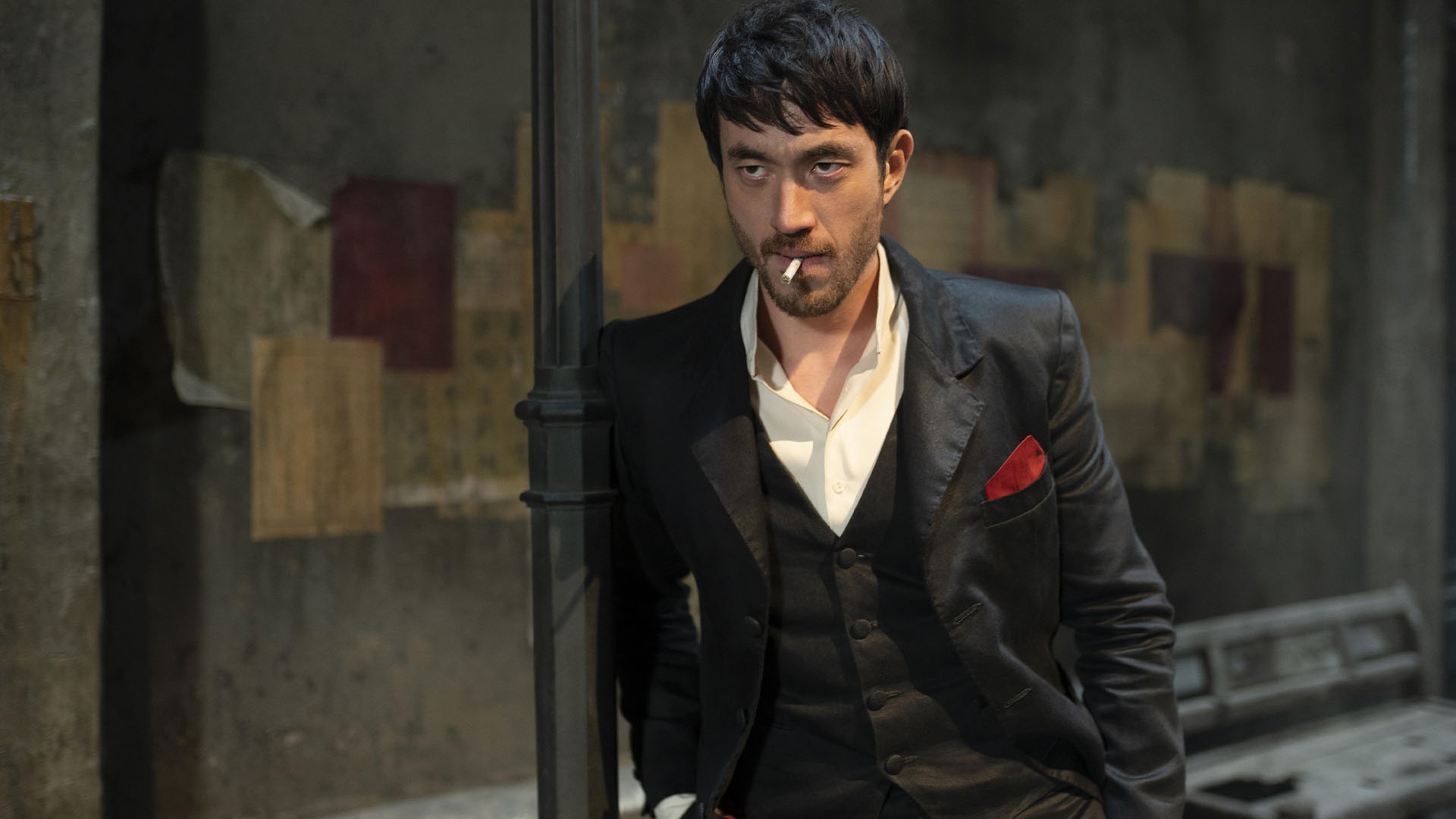
We left season two in a disarray of stormy upheaval and bloody clashes, as the turf wars in San Francisco’s Chinatown and political power-grabs intensified. The fallout served as a reminder of the bigger picture: as much as Warrior began with the journey of lowly Chinese immigrant Ah Sahm (played with dutiful steeliness by Andrew Koji) ascending the ranks to become a renowned Tong hatchetman, it’s also transformed into a formidable ensemble piece about a city in flux, traversing the dingy spaces of opium dens and Irish pubs to the yawping politicking of city council chambers.
The writers wove enough of a dense, multi-arc tapestry around Lee’s treatment that even when the action took a back seat, the complex characters, political chicanery, and socially resonant themes (xenophobia, entitlement, privilege) stood sufficiently, endlessly watchable, on their own.
One of the key seismic conflicts to watch closely for this season is the widening rift between Ah Sahm and Young Jun (James Tobin), who since taking over the Hop Wei from his father, has largely fumbled the job. The revelation that the Long Zii’s leader Mai Ling (Dianne Doan) is Ah Sahm’s estranged sister has made him increasingly testy and paranoid, souring their brotherhood. Meanwhile, Ah Sahm, following his valiant fighting in season two’s climactic riots, has emerged a revered role model and hero within the community. “You know me?”, he asks a kid in season three’s opening episode. “Everyone knows you,” the kid says.
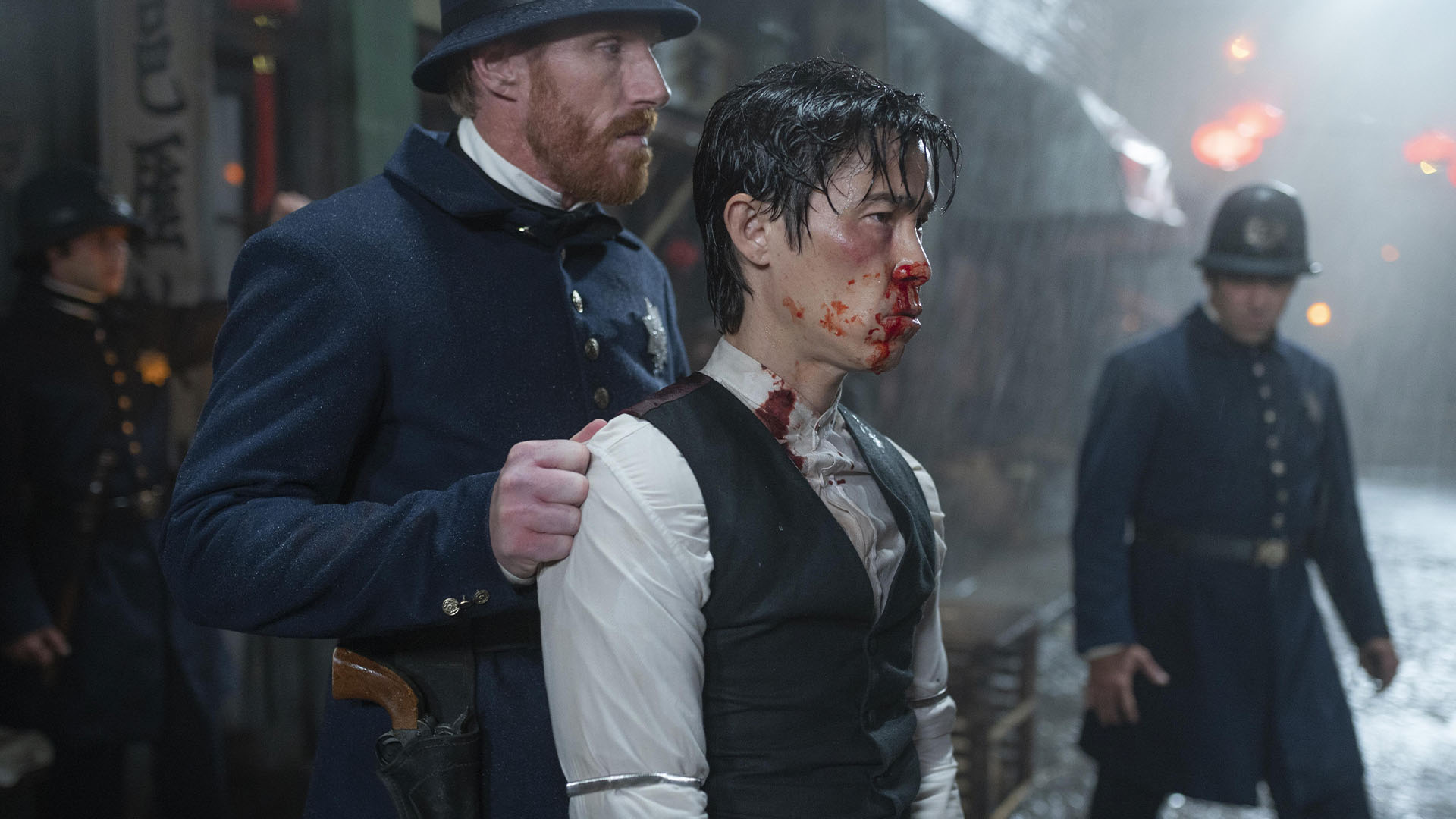
Similarly, Mai Ling is outperforming Young Jun in ambition, power and stature. The remaining tongs in Chinatown are being ruthlessly absorbed by the Long Zii. Her underhand relationship with San Fran’s slimey mayor, Walter Buckley (Langley Kirkwood), ensures that her territory is shielded from police raids. And we are now seeing her courting high—and very white—society and pocketing the alliance of powerful elites. In a move to rehabilitate his image and win back respect, Young Jun throws himself, as recklessly as he’s always been, into a counterfeiting scheme with the encouragement of slippery, ever-opportunistic weapons dealer Chao (Hoon Lee).
The new characters are promising, winningly placed to orchestrate as much mayhem as possible in the coming episodes. The new Chief of Police, Benjamin Chatwood (Neels Clasen), is a vicious asshole who’s rubbing former Chinatown Gang sergeant Bill O’Hara (Kieran Bew), hoping to be the next in line for the position, the wrong way. There’s also brusque Secret Service agent Edmund Mosely (Nick Cordileone) sniffing around, on the trail of the counterfeit plot, rubbing Chatwood the wrong way.
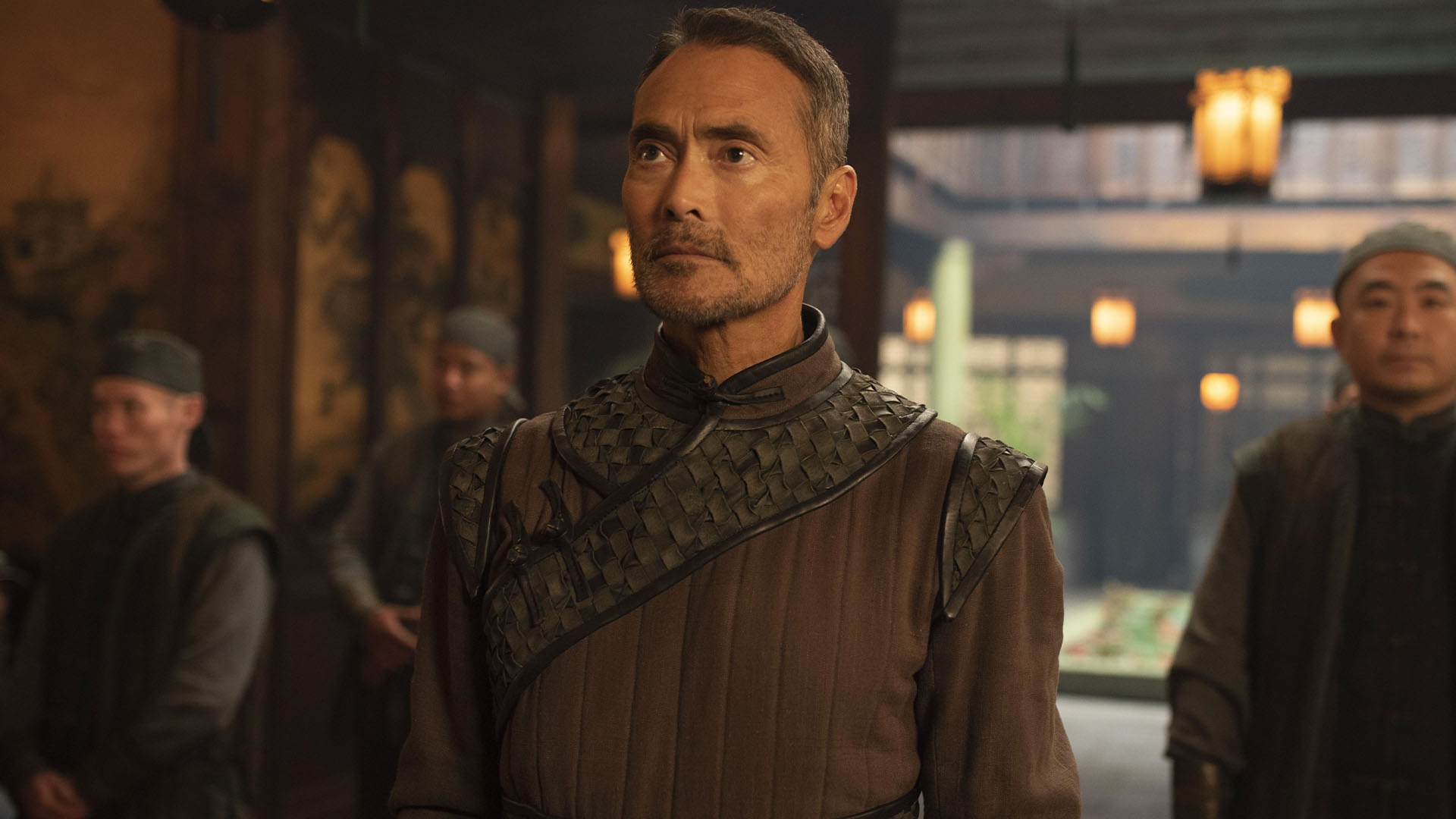
Most exciting for martial arts fans will be the introduction of Mark Dacascos’ Kong Pak, an old friend of the Long Zii’s chief lieutenant Li Yong (Joe Taslim). Dacascos brings a wise, watchful dynamic to his scenes with Taslim so far, and having him trade blows with someone like Ah Sahm, or even Workingmen’s Party leader Dylan Leary (Dean Jagger), is an explosive prospect.
Speaking of Leary, his attempt to leave behind the thug life and become a voice for the Irish working class is off to a bumpy start. Strong-arming steel suppliers, beating the shit out of his insubordinate workers—Leary is still at his best when talking with his fists. He’s one of Warrior’s most fascinating and enduring bad guys, the impassioned beacon for the ongoing racial tension between the Chinese and the Irish, and Jagger is never less than magnetic in the role, unearthing slips of vulnerability within a hulking monster.
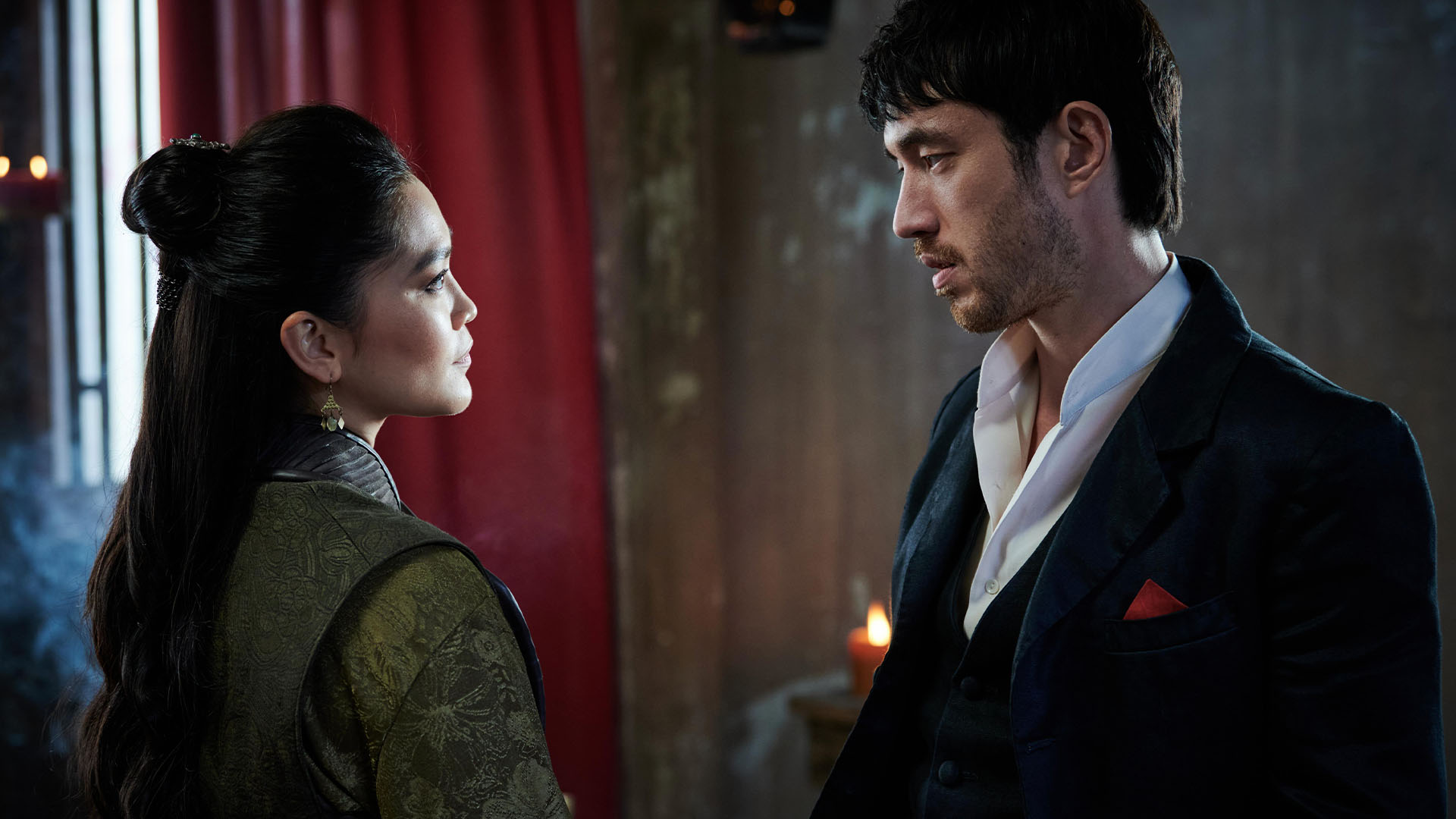
For Ah Sahm, this season signals a deeper spiritual challenge to his identity. Sparks fly with Yan Mi (Chelsea Muirhead), a printer whom he’s tasked to manage for the counterfeit operation. In a rare moment of introspection with her, we see his guard fall: is he content to be another hatchetman in an expensive suit, or is he, as one might assume, the titular warrior who must rise to the occasion for his people?
Action-wise, if the curtain-raising carnage of the season’s first episode is anything to go by—it’s undoubtedly one of the crunchiest and bloodiest sequences fight and stunt coordinator Brett Chan has ever staged yet—we’re going to be in a for pulverising, bruising treat.



















